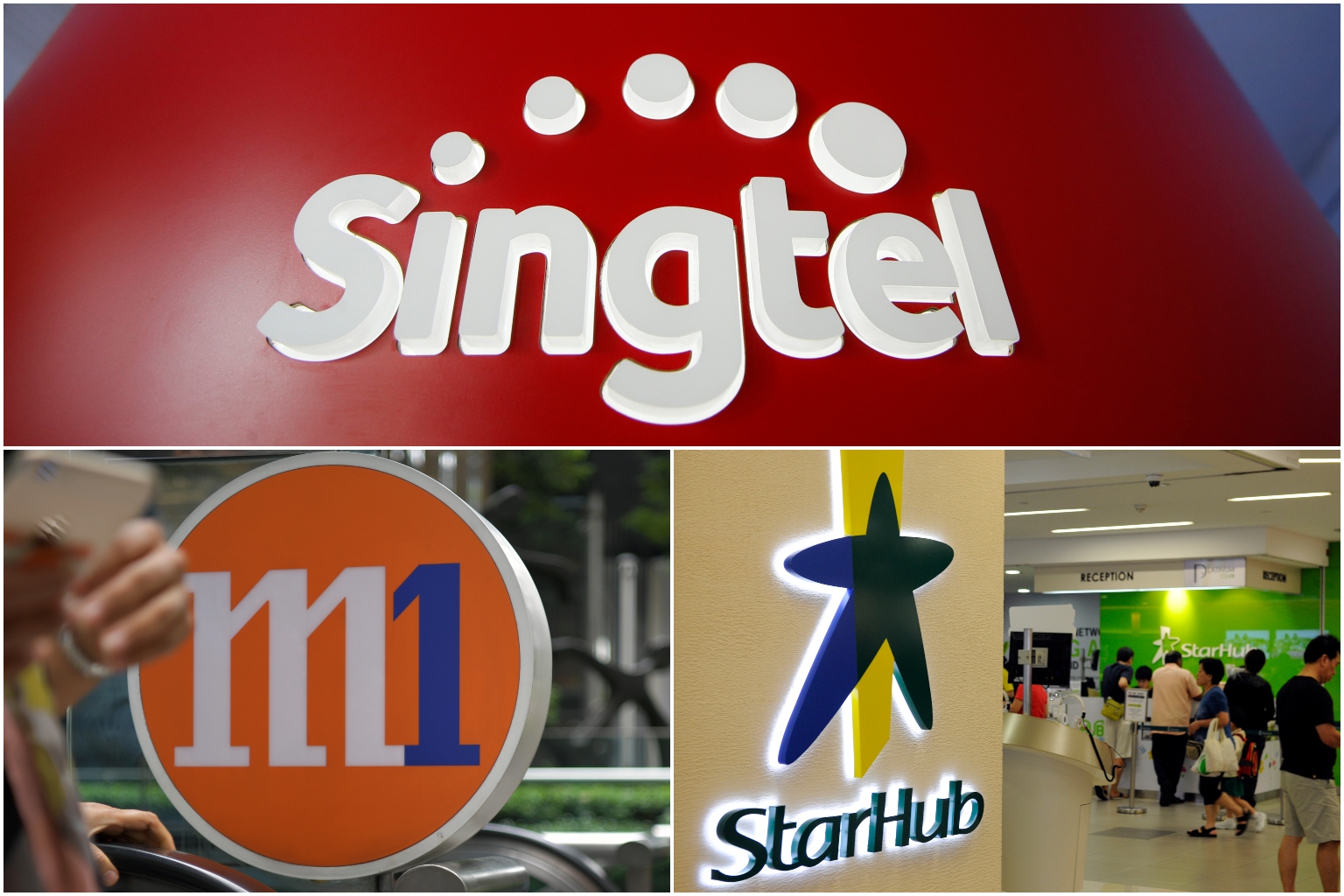Despite 5G fanfare, mobile operators still boosting older network connections
Sign up now: Get ST's newsletters delivered to your inbox

Singapore clocked 90.2 per cent 4G access in May 2019, up from 84.4 per cent in February 2018 - meaning that more than nine in 10 users here were able to lock onto LTE networks, rather than older, slower 3G ones, for the first time.
PHOTOS: REUTERS, ST FILE, BLOOMBERG
SINGAPORE - Singtel has pushed mobile users' network coverage in Singapore past a key threshold, according to findings from an industry analytics firm.
The Republic clocked 90.2 per cent 4G access in May 2019, up from 84.4 per cent in February 2018 - meaning that more than nine in 10 users here were able to lock onto LTE (Long Term Evolution) networks, rather than older, slower 3G ones, for the first time.
But this was led by market-leading network operator Singtel's 91.2 per cent 4G coverage, said Opensignal - which carried out the research - on Tuesday (June 11).
Telco M1 - which was recently privatised by Keppel Corp and The Straits Times publisher Singapore Press Holdings - notched 89.4 per cent 4G coverage.
Meanwhile, mainboard-listed StarHub achieved 89.2 per cent coverage.
No results were given for new network operator TPG Telecom, which launched service trials in December 2018 but was plagued by reports of patchy coverage at the outset.
Opensignal analyst Kevin Fitchard wrote in the latest report: "For the last year, all three Singapore operators have been edging closer to the 90 per cent 4G availability milestone, and in our latest test period, the first of them finally crossed the line."
He also noted that "M1 and StarHub are on the cusp of reaching the same milestone".
Meanwhile, network operators here clocked average download speeds of 39.9 Mbps and upload speeds of 13.1 Mbps overall - making Singapore the second-fastest city in the Asia-Pacific, behind Seoul - in a move that Opensignal attributed to the wider 4G coverage.
The firm's telecommunication data was based on some 141.3 million connections by more than 82,100 devices from February to May 2019.
Singapore - which notched the 14th-best 4G coverage in the latest survey, out of 87 markets - has lagged Asia-Pacific peers such as South Korea, Japan, Taiwan and Australia on this front.
Still, Mr Fitchard added: "The fact that we see any growth in this metric at all shows that even with highly advanced 4G infrastructures - and a pending shift to 5G technology - Singapore's operators are still invested in improving the mobile broadband experience."
With regulators worldwide breaking the ice on fifth-generation mobile technology, Singapore's Infocomm Media Development Authority opened a public consultation last month, seeking proposals and feedback from industry players on network needs.
But it expects a wide-scale deployment of 5G only from 2023 or 2024, and has noted that the 2.1 GHz spectrum band will still be needed for 3G "possibly until at least 2025, if not later".
Even as the 2.1 GHz band in question is recycled for 4G services, observers have suggested that the authorities may have to put the lid on 3G services - just as the island's 2G mobile network was shut down in 2017 to free up the airwaves. Watchers warned that telcos would otherwise in future cover the costs of running three different systems: 3G, 4G and 5G.


